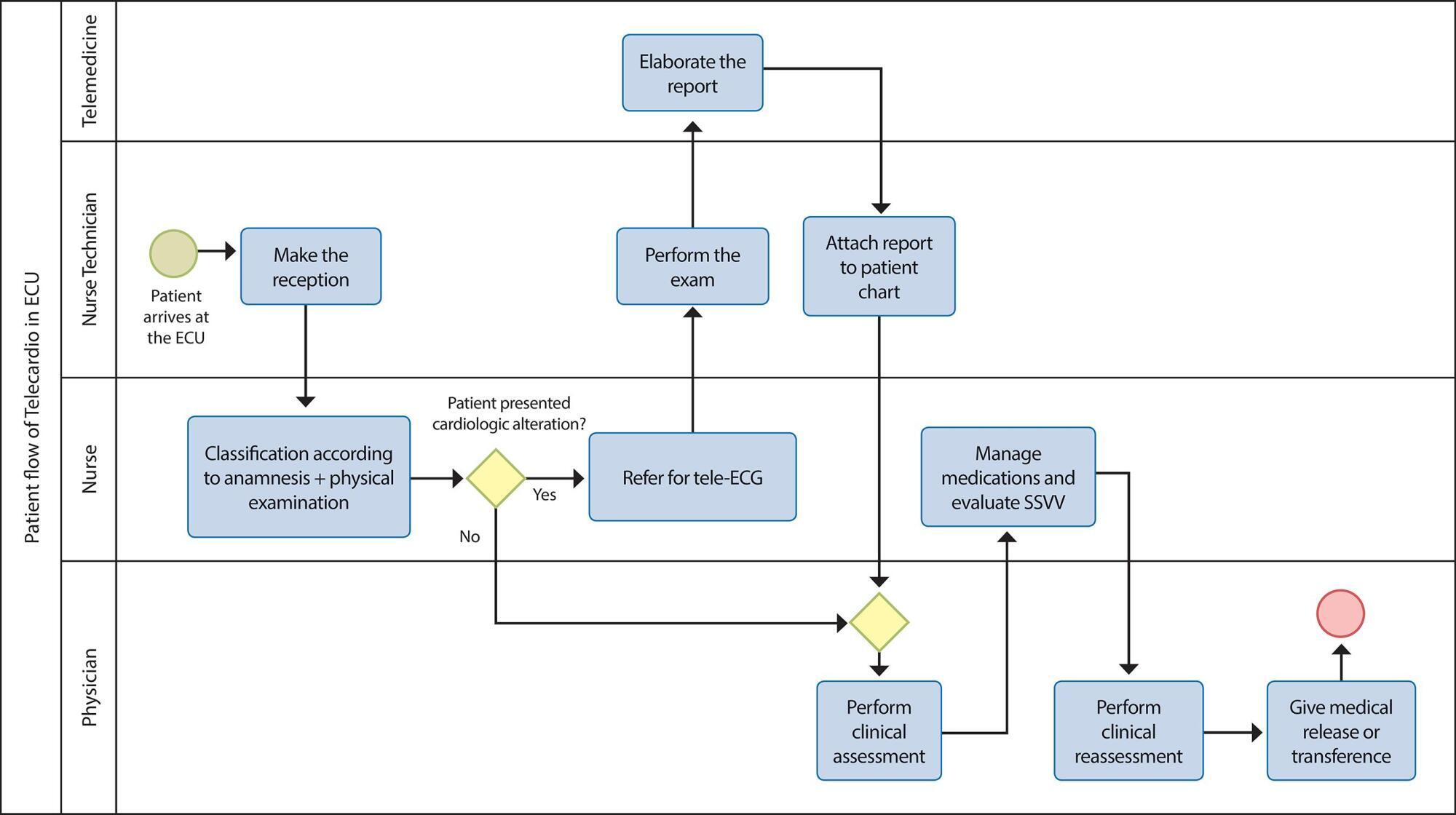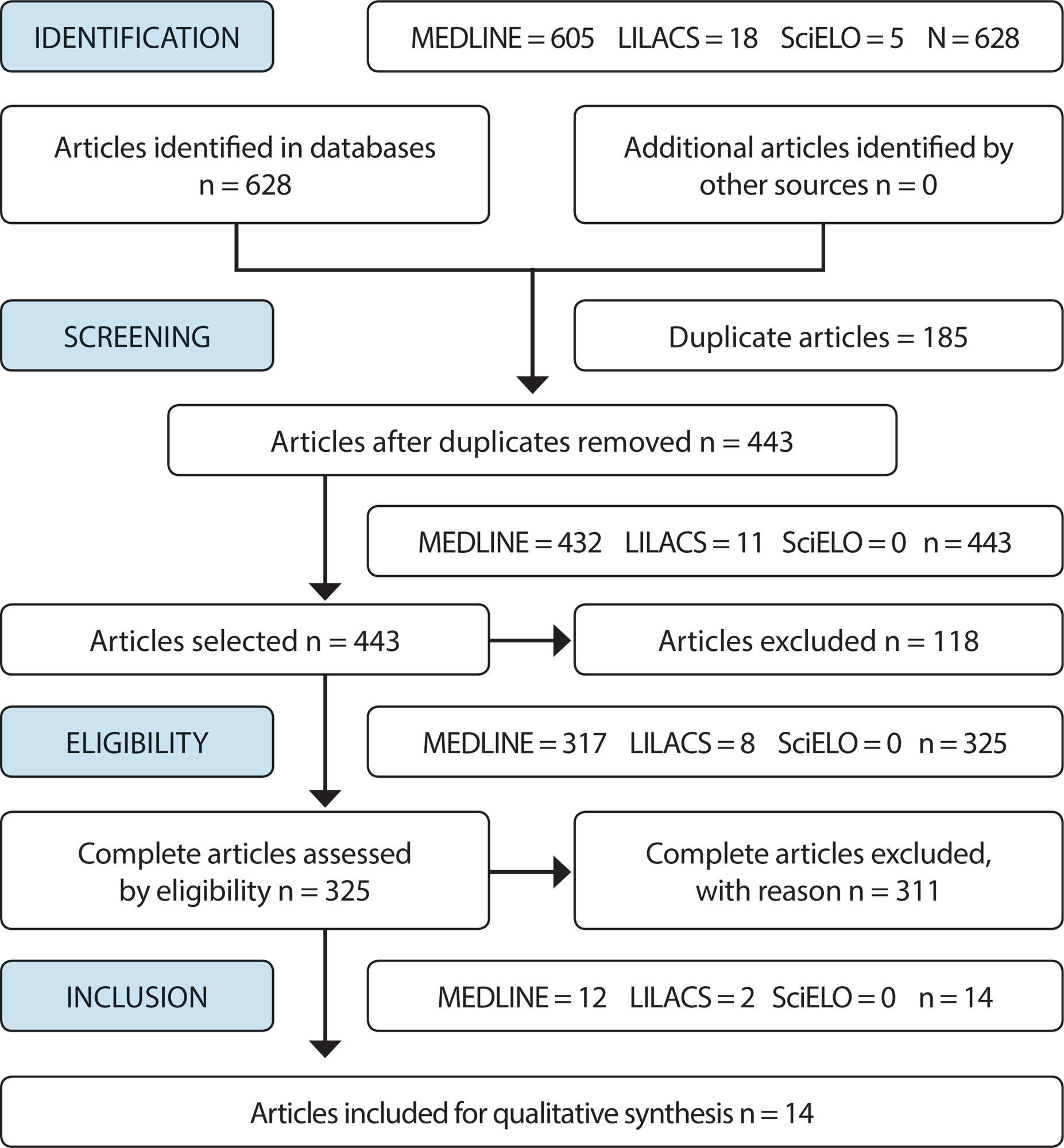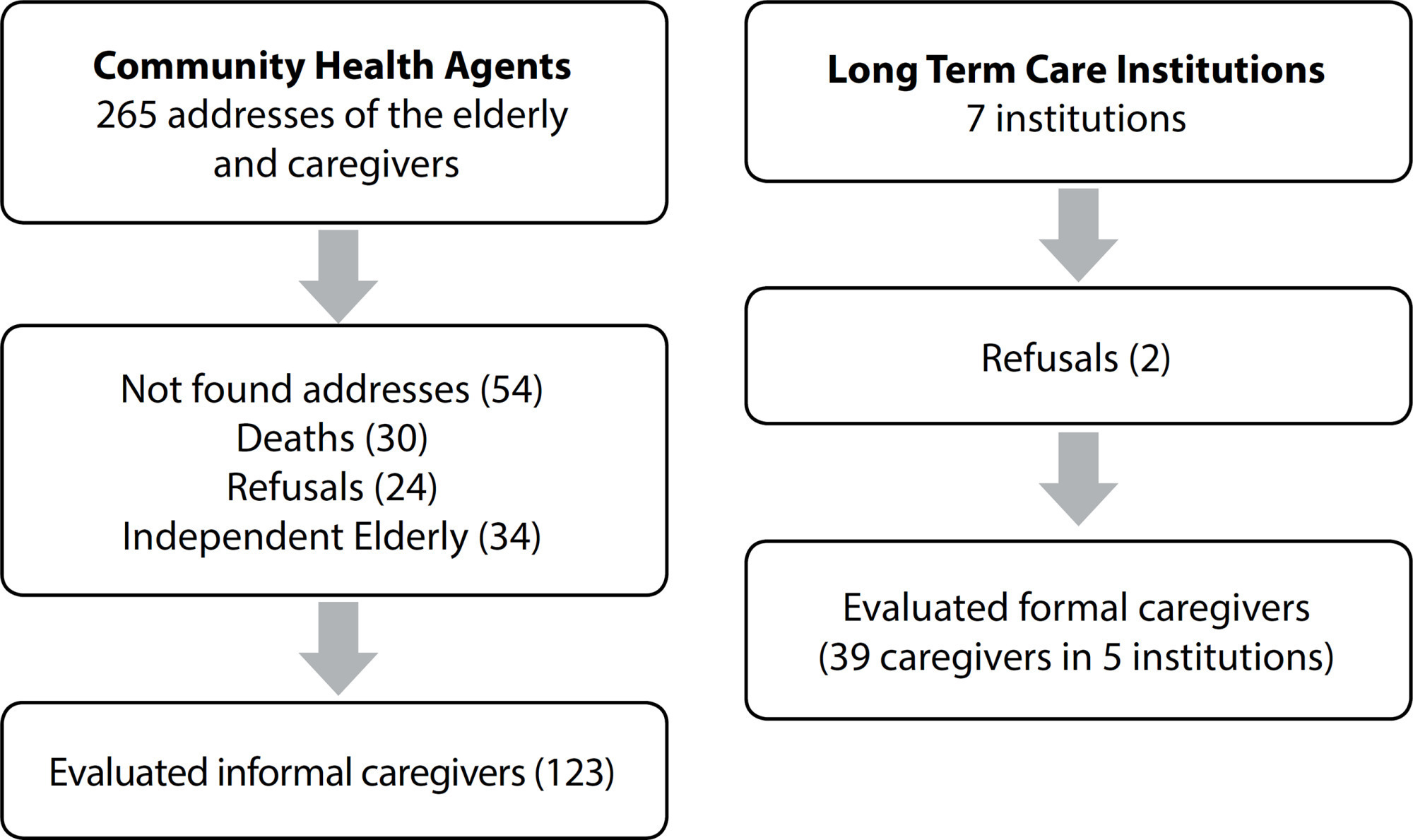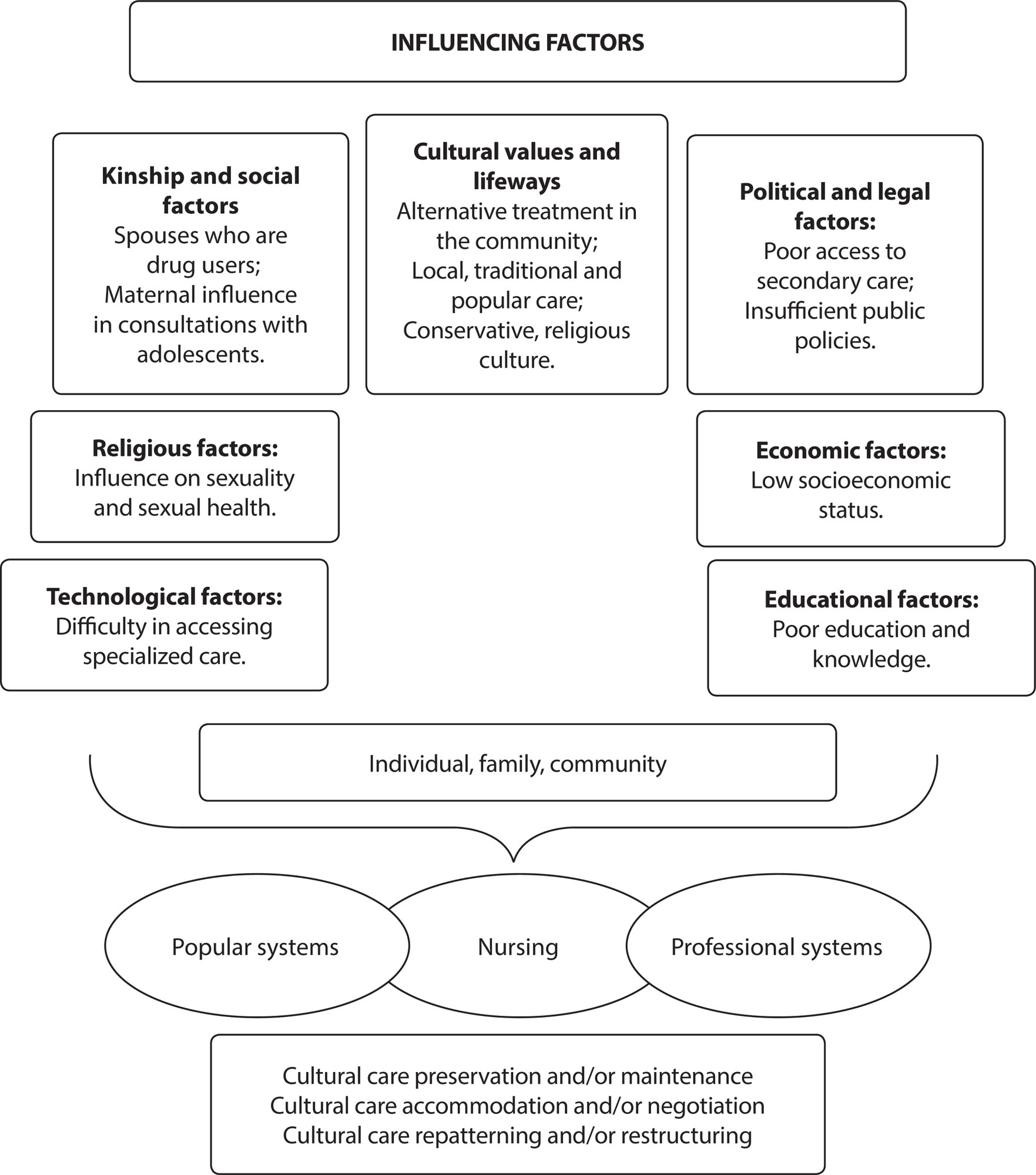-
RESEARCH01-01-2017
Health education with older adults: action research with primary care professionals
Revista Brasileira de Enfermagem. 2017;70(4):792-799
Abstract
RESEARCHHealth education with older adults: action research with primary care professionals
Revista Brasileira de Enfermagem. 2017;70(4):792-799
DOI 10.1590/0034-7167-2016-0349
Views0See moreABSTRACT
Objective:
To assess the development and implementation of permanent education action.
Method:
Quantitative-qualitative research based on action research in three phases (diagnosis of reality, implementation of activity and evaluation), performed with health professionals and managers of basic health units. The evaluation was on the perception of changes immediately following the activity and after 120 days.
Results:
In the first phase, 110 professionals took part, 36.4% of whom indicated the existence of groups for older adults at work. In the second phase, 98 professionals participated, pointing out interferences of the group in the life of older adults, items of importance and facilitation in forming groups and developing reality-based activities. The third phase showed, in the quantitative analysis, positive impact of the training, and in the qualitative analysis, reassessment of groups, greater knowledge and confidence in managing groups and increased respect for older adults.
Final considerations:
Permanent education opens pathways for the construction of differentiated care for older adults based on respect and health promotion.

-
RESEARCH01-01-2017
Older adults abuse in three Brazilian cities
Revista Brasileira de Enfermagem. 2017;70(4):783-791
Abstract
RESEARCHOlder adults abuse in three Brazilian cities
Revista Brasileira de Enfermagem. 2017;70(4):783-791
DOI 10.1590/0034-7167-2017-0114
Views0See moreABSTRACT
Objective:
To analyze the police reports filed by older adults who suffered abuse in order to identify the socio-demographic characteristics of victims and aggressors, type of violence, location, as well as to compare rates in three Brazilian cities in the period from 2009 to 2013.
Method:
Ecological study, in which 2,612 police reports registered in Police Stations were analyzed. An instrument was used to obtain data from the victim, the aggressor and the type of violence.
Results:
Psychological abuse predominated and most cases occurred in the older adults own home. In the cities of Ribeirão Preto and João Pessoa, the older adults presented similar rates for both gender. Regarding the standardized rates, in João Pessoa, there was a rise of this type of abuse in the two first years, and later there was a certain stability. In the city of Teresina, there was an increase, also observed in the city of Ribeirão Preto in the three first years, followed by a decrease.
Conclusion:
Older adults abuse is a cultural phenomenon difficult to be reported by them, since it occurs in the family context.

-
RESEARCH01-01-2017
Validation of educational booklet for HIV/Aids prevention in older adults
Revista Brasileira de Enfermagem. 2017;70(4):775-782
Abstract
RESEARCHValidation of educational booklet for HIV/Aids prevention in older adults
Revista Brasileira de Enfermagem. 2017;70(4):775-782
DOI 10.1590/0034-7167-2017-0145
Views0See moreABSTRACT
Objective:
To describe the process of manufacturing and validation of an educational booklet for HIV/Aids prevention in older adults
Methods:
Methodological study developed in two phases – manufacturing of the booklet and validation of the educational material by judges. The manufacturing process involved a situational diagnosis with older adults, and its result indicated gaps in the knowledge with respect to HIV/Aids. The validation process was performed by nine judges, selected by convenience. It was considered an agreement index of at least 0.80, analyzed through the content validity index.
Results:
We opted for a dialogue between two older adults divided into three categories: myths and taboos; ignorance; and prevention and importance of diagnosis. The average of the items was 0.90. The suggestions made by the judges were observed and modified for the final version.
Conclusion:
The material had relevant content for the judges, in addition to being able to be used by health professionals in the education and clarification of issues on the subject.

-
RESEARCH01-01-2017
Association between filial responsibility when caring for parents and the caregivers overload
Revista Brasileira de Enfermagem. 2017;70(4):767-774
Abstract
RESEARCHAssociation between filial responsibility when caring for parents and the caregivers overload
Revista Brasileira de Enfermagem. 2017;70(4):767-774
DOI 10.1590/0034-7167-2017-0133
Views0See moreABSTRACT
Objective:
To analyze the association between filial responsibility and the overload of the children when caring for their older parents.
Method:
Cross-sectional study with 100 caregiver children of older adults. Filial liability was assessed by the attitudes of the responsible child (scale of expectation and filial duty) and by care behaviors (assistance in activities of daily living, emotional and financial support, and keeping company). The overload was assessed by the Caregiver Burden Inventory. To assess the associations, the correlation coefficients of Pearson and Spearman, Kruskal-Wallis Test, and Mann-Whitney were employed. Variables that presented p-value<0.20 in the bivariate analysis were inserted in a multivariate linear regression model.
Results:
The factors associated with overload were: formal employment (p=0.002), feelings regarding family life (p<0.001), financial support (p=0.027), and assistance with Activities of Daily Living (ADLs) (p<0.001).
Conclusion:
Children who were more involved with the ADLs and provided financial support showed higher levels of overload.
-
RESEARCH01-01-2017
Religiosity and spirituality as resilience strategies among long-living older adults in their daily lives
Revista Brasileira de Enfermagem. 2017;70(4):761-766
Abstract
RESEARCHReligiosity and spirituality as resilience strategies among long-living older adults in their daily lives
Revista Brasileira de Enfermagem. 2017;70(4):761-766
DOI 10.1590/0034-7167-2016-0630
Views0See moreABSTRACT
Objective:
to investigate religiosity and spirituality as a resilience strategy for the long-living older adults in their daily lives.
Method:
Qualitative research of phenomenological approach based on Martin Heidegger thoughts. Interviews were conducted with 14 older adults registered at a family health unit in the city of Jequié, BA, Brazil. The data were analyzed in the light of Being and Time.
Results:
The results revealed that God occupies a central position in their lives, and the reading of the bible, praying the rosary and prayers are resilience strategies used for coping with unfavorable situations, recovery and/or maintenance of health, personal and family protection, and, above all, the experience of a satisfactory aging.
Final considerations:
Religiosity and spirituality were presented as an important resilience strategy in the existence of older adults, showing that through them it is possible to achieve well-being and cope with health and social problems.

-
RESEARCH01-01-2017
Family of older adults with mental disorder: perception of mental health professionals
Revista Brasileira de Enfermagem. 2017;70(4):753-760
Abstract
RESEARCHFamily of older adults with mental disorder: perception of mental health professionals
Revista Brasileira de Enfermagem. 2017;70(4):753-760
DOI 10.1590/0034-7167-2016-0646
Views0See moreABSTRACT
Objective:
to understand the perceptions of healthcare professionals of the Psychosocial Care Centers regarding the family of older adults with mental disorders.
Method:
study of a Qualitative Case conducted with 12 healthcare professionals from a Psychosocial Care Center, with a convenient and exhaustive sample. Conducting semi-structured interviews to collect data, which were analyzed with the Content Analysis technique.
Results:
the following categories stood out: “Family exhaustion and deterioration in the perception of the healthcare professional” and “The abandonment of older adults by family members and their distancing in the perception of the healthcare professional.”
Final considerations:
culpability of older adults and penalization of the family were verified by healthcare professionals. To bring awareness about the difficulties faced in the attempt to bring the family closer to the healthcare service, it is necessary to analyze the care given to the older adult and to overcome challenges in the effective construction of the bond between family, healthcare user and mental health service.
-
RESEARCH01-01-2017
Frailty in the elderly: prevalence and associated factors
Revista Brasileira de Enfermagem. 2017;70(4):747-752
Abstract
RESEARCHFrailty in the elderly: prevalence and associated factors
Revista Brasileira de Enfermagem. 2017;70(4):747-752
DOI 10.1590/0034-7167-2016-0633
Views0See moreABSTRACT
Objective:
to know the prevalence and factors associated with frailty in elderly assisted by the Centro Mais Vida de Referência em Assistência à Saúde do Idoso (Mais Vida Health Reference Center for the Elderly) in the North of Minas Gerais, Brazil.
Method:
cross-sectional study, with sampling by convenience. Data collection occurred in 2015. Demographic and socioeconomic variables, morbidities, use of health services and the score of the Edmonton Frail Scale were analyzed. The adjusted prevalence ratios were obtained by multiple analysis of Poisson regression with robust variance.
Results:
360 elderly aged 65 or older were evaluated. Frailty prevalence was 47.2%. The variables associated with frailty were the following: advanced age elderly, who live without a partner, have a caregiver, present depressive symptoms, osteoarticular disease, as well as history of hospitalization and falls in the last twelve months.
Conclusion:
knowledge of factors associated with frailty allows development of health actions aimed at the elderly.
-
RESEARCH01-01-2017
Falls in long-term care institutions for elderly people: protocol validation
Revista Brasileira de Enfermagem. 2017;70(4):740-746
Abstract
RESEARCHFalls in long-term care institutions for elderly people: protocol validation
Revista Brasileira de Enfermagem. 2017;70(4):740-746
DOI 10.1590/0034-7167-2017-0109
Views1See moreABSTRACT
Objectives:
To validate the content of a fall management risk protocol in long-term institutions for elderly people.
Methods:
Methodological, quanti-qualitative study using the Delphi technique. The tool, based on the literature, was sent electronically to obtain consensus among the 14 experts that meet the defined inclusion criteria.
Results:
The 27 indicators of the protocol are organized in three dimensions: prepare for the institutionalization (IRA=.88); manage the risk of falls throughout the institutionalization (IRA=.9); and lead the communication and formation (IRA=1), with a CVI=.91. Two rounds were performed to get a consensus superior to 80% in every item.
Conclusion:
The values obtained in the reliability test (>0.8) show that the protocol can be used to meet the intended goal. The next step is the clinic validation of the protocol with residents of long-term care institutions for elderly people.
Search
Search in:
Nuvem de Tags
Enfermagem (930)Cuidados de Enfermagem (269)Atenção Primária à Saúde (239)Idoso (208)Educação em Enfermagem (151)Segurança do Paciente (150)Saúde Mental (145)Educação em Saúde (139)Estudos de Validação (131)Qualidade de Vida (104)Tecnologia Educacional (100)Promoção da Saúde (99)COVID-19 (91)Criança (91)Família (87)Enfermagem Pediátrica (86)Saúde do Trabalhador (86)Adolescente (85)Saúde Pública (82)Estudantes de Enfermagem (77)








